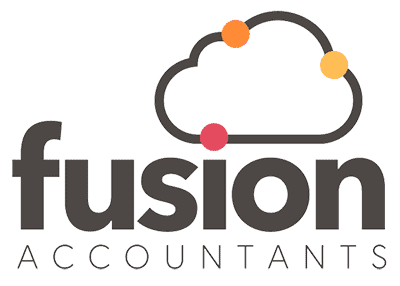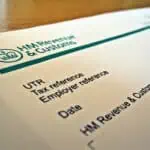A-Z guide of the common business costs & expenses for Limited Companies
Reading Time:
From stationery to printing to travel costs, every business has overheads to manage and claim business expenses is a simple way of keeping your business tax efficient – it reduces your profit, which lowers your Corporation Tax liability and payments. In addition, by claiming every allowable expense, you make sure you do not pay a penny more in tax than you need to.
The general rule is that expenses must be “wholly, exclusively and necessary” for business purposes, and HMRC’s rules can be complex and are reasonable in the claim being made.
When claiming Limited company business expenses, there are several rules you need to follow:
- Business expenses may be paid through your company’s bank account or reimbursed through your company.
- Except for business entertainment, you can deduct your expenses from your company’s tax liability. (see below)
- Keep proper records of all operating expenses, including VAT receipts, in case of an HMRC tax enquiry.
- You can only claim expenses that are directly related to your business.
- If you decide to prolong a work trip abroad for some extra leisure time, you can only claim for business-related days.
In this article, we will go over the main types of business expenses that you can claim for tax purposes as a limited company.
A-Z of Limited company expenses you can claim
Accommodation expenses
If you’re on a business trip and have to stay overnight away from your home, you can claim the accommodation costs as an expense. You can also claim the costs incurred by the food and drink as travel and subsistence costs.
Advertising, Marketing and PR expenses
You work hard to advertise, market, and promote your company’s products and services. Therefore, any investment made primarily for business purposes qualifies as one of your limited company expenses.
Bank charges
The bank fees that are charged to your business accounts, including credit card and loan interest, can be claimed as business expenses.
Business insurance expenses
You can claim the cost of your business insurance policies as limited company expenses, as long as they’re used strictly for business purposes. Business insurances including public liability insurance, employers liability, professional indemnity insurance and contents insurance are all allowable expenses.
Childcare expenses
Childcare costs aren’t directly linked to the management of your business and can’t be claimed as a business expense. However, a limited company can claim tax relief on childcare costs via childcare vouchers up to a total value of £243 each month.
Equipment expenses
Computers, software, scanners, and printers are just a few examples of equipment that can be claimed as business expenses. For business purposes only, office furniture such as chairs and desks can also be claimed.
Entertainment expenses
Generally, business entertainment is not a tax-deductible item against profits. On the other hand, if you are required to spend your own money on business entertainment as part of your duties as a limited company director, you may be entitled to claim it as a business cost.
Gifts and entertainment

You do not need to pay tax and National Insurance or let HMRC know about a gift or benefit for your employee (otherwise known as a trivial benefit) if the following rules apply:
- It’s not set out in the terms of their contract
- It’s not a reward for their performance or work
- It isn’t cash or a cash voucher
- It cost you £50 or less to provide
If you offer employees gifts or benefits that don’t match the criteria above, then you’ll need to pay tax on them.
Health check and eye test expenses
If your employees spend a significant amount of time in front of a computer screen, they can claim eye exams and health checks as limited corporate expenses. Similarly, prescription glasses or contact lenses can be claimed as small business costs if used exclusively for screen-based work as part of their employment.
Pensions
Once you’ve established an agreement with a pension provider, you can pay into your pension pot and get 100% tax relief as a limited company expense. However, there’s a £40,000 limit on how much money you can add tax-free to a pension scheme via your business or personal.
Phone bills
Including phone and internet service, communication utilities are deductible as business expenses. The total bill can be claimed as a business expense if the contract is in your company’s name and only for business. However, a personal contract requires segregation of business and personal use, with business-only expenses being claimed. You can also deduct business calls made from your home phone as a limited company cost.
Professional subscription expenses
Magazine, journal, and book subscriptions can be claimed as business expenditures. For example, assume you are the editor of a photographic magazine and subscribe to a competitor. In such a situation, you should be able to claim the amount as a business expense because it keeps your company informed about industry trends and competition.
Professional development expenses
Personal development and training courses can be claimed as limited company expenses. Make sure you check it’s eligible before hitting the books. For example, any training you undergo to become a chartered accountant is an allowable expense.
Staff Christmas party expenses
Whether it’s a Christmas shindig or a staff summer party, the costs of entertaining your employees can be claimed as a business expense as long as it’s an annual event open to all staff members and costs less than £150 per person.
Start-up costs

Start-up costs can be claimed as limited company expenses for up to seven years before a company starts trading. Everyday pre-formation business expenses include:
- Computer equipment and software.
- Internet and domain name fees.
- Travel costs.
- Professional services such as accounting and legal help.
Salary
As a director of a limited company, if you choose to pay yourself a salary as an employee of your business, this, and the corresponding National Insurance Contributions (NIC), can be claimed as allowable expenses. However, remember that once you reach the National Insurance threshold, you’ll have to start to pay NICs.
Travel/Business expenses
Only if the travel is necessary for work purposes and you need to be present at a business meeting. However, this does not include your daily commute from A-B. You can’t claim if you turn a personal trip into a business journey, or if you can only claim for those that were business-related on a business trip that is then extended for an extended leisurely stay.
If you use your car or van to travel to a temporary place of work and you’ve paid for the fuel out of your pocket, you can claim the following rates as limited company expenses:
- Car and vans – 45p per mile for the first 10,000 miles and then 25p for every mile thereafter.
- Motorcyclists – 24p per mile
- Bicycle – 20p per mile
As well as the mileage rates listed above you can also claim the following as business expenses:
- Parking costs
- Road toll fees
- Congestion charges
- Hotel rooms (within reason)
- Food and drink on overnight trips
- Public transport, including train, bus, air and taxi fares
- Vehicle Insurance
- Vehicle repairs and servicing
Don’t pay more tax than you need to
Nobody wants to pay more tax than they have to, so it’s important to keep your business as tax efficient as possible which could help save you quite a bit of money in the long term.
Our top tip to remember is that when it comes to working out what allowable expenses you can claim for your limited company, ask yourself, “Is the claim incurred wholly, exclusively, and necessary in running my business?”
If you are finding the process of working out the allowable expenses for your limited company a bit bewildering, you can always get in touch with us to talk through any of the above or chat through any other tax or accountancy questions you may have on 020 8577 0200.
Also Read: Quick Guide – Changes to ISA’s for 2017-2018






